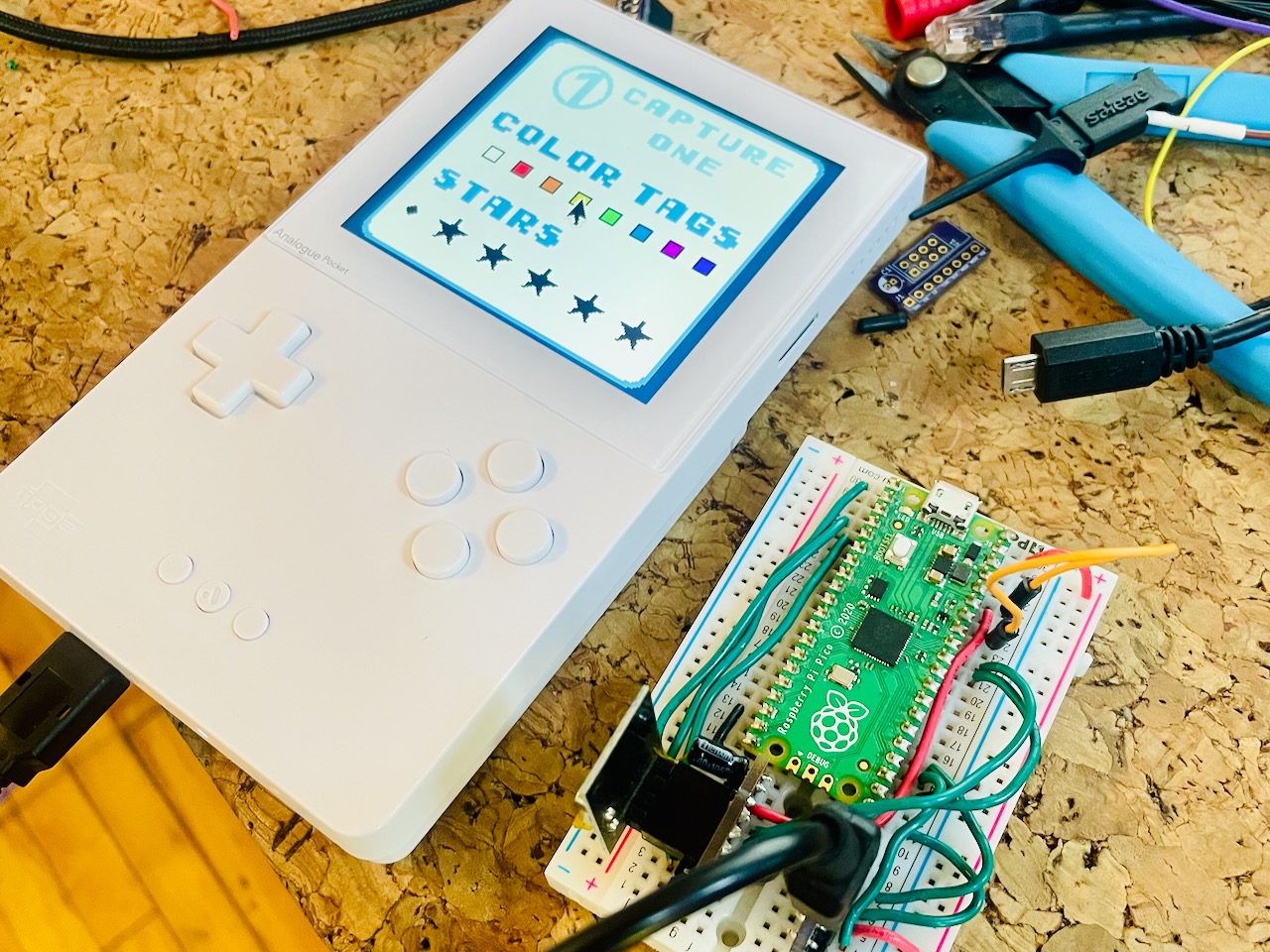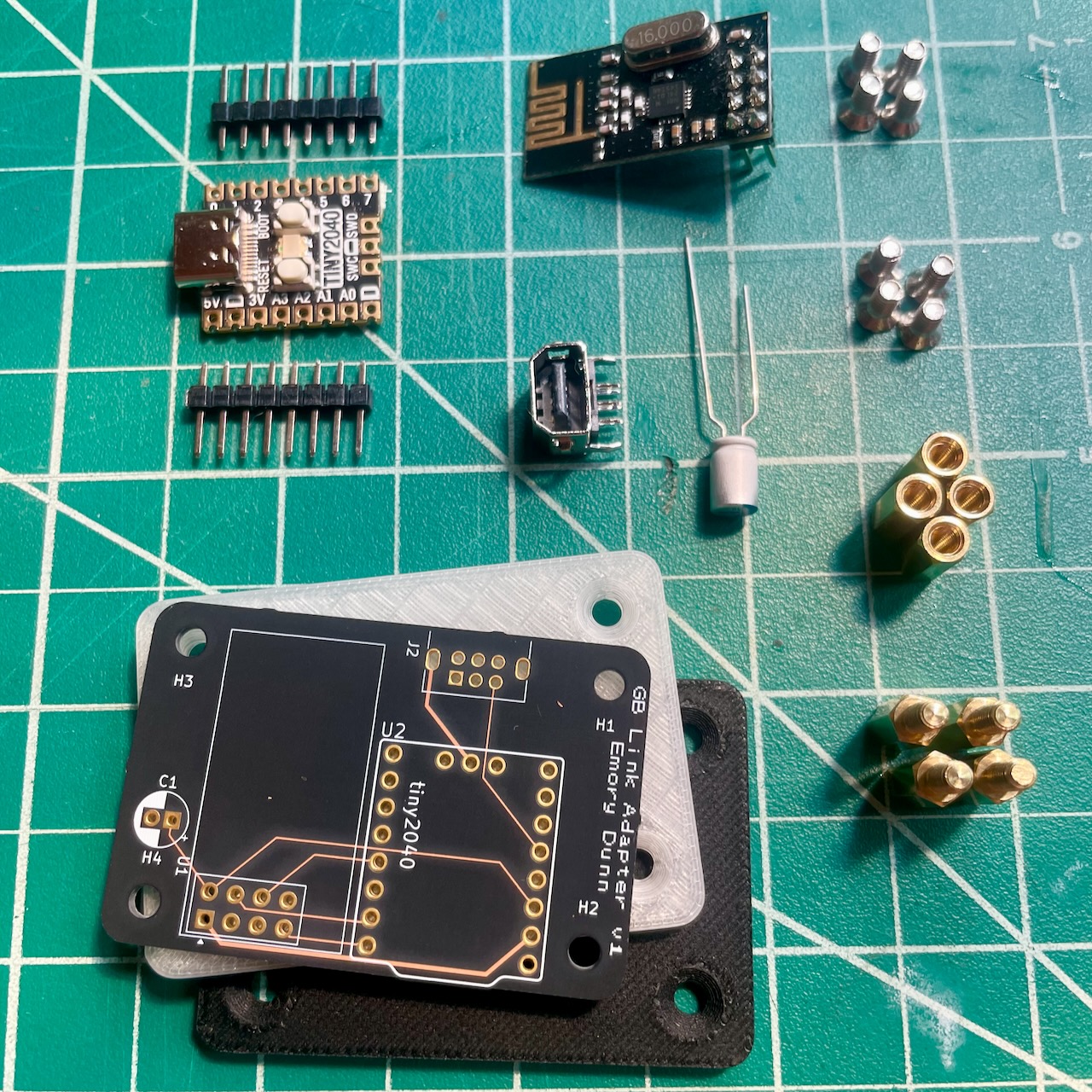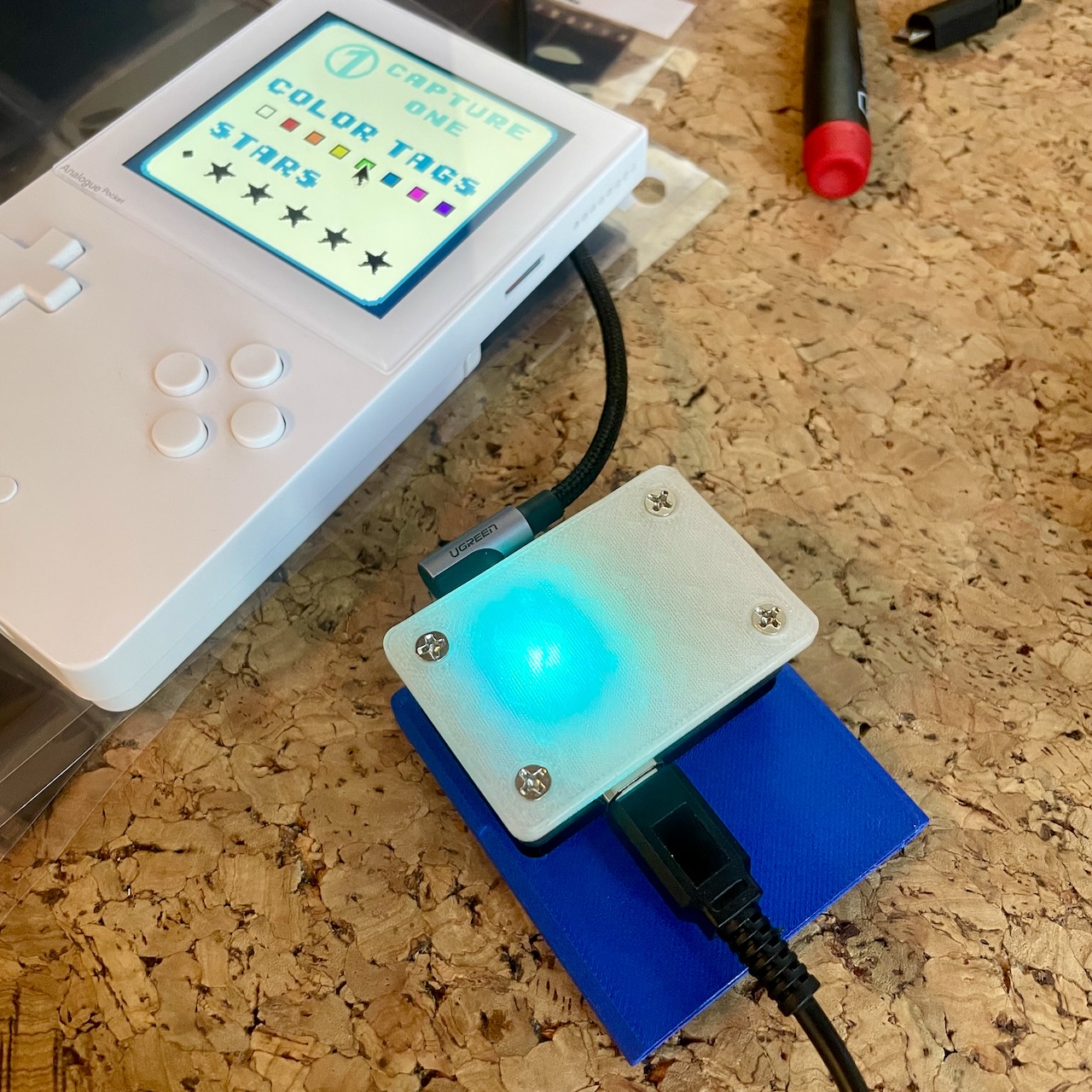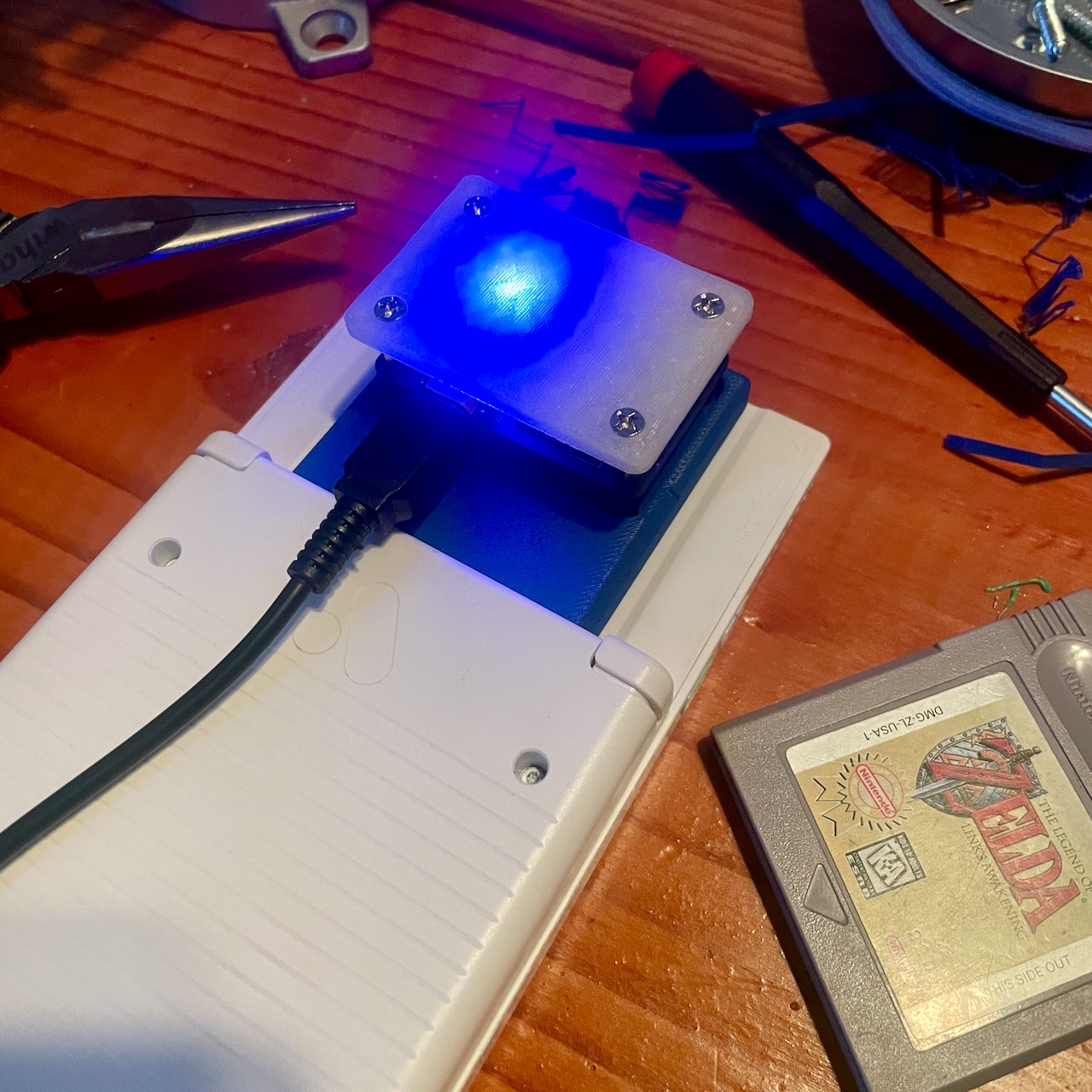Capture One: GameBoy Edition
18 Aug 2024 ∞
All the way back in May I got a bad idea: Capture One for the GameBoy.
Obviously not all of Capture One, but some sort of controller. While bored one evening I built a very non-functional proof-of-concept GameBoy game with GB Studio demonstrating what the features of the "game" would be. In short it would allow you to add color tags and star ratings to images. As a bonus I wanted the whole system to be (optionally) wireless.

A couple of rabbit holes later exploring GameBoy link cable communication I'd discovered that it uses SPI, which is easy to work with. Sending data via the GameBoy link port isn't actually all that difficult. GB Studio has an easy drag-and-drop node you can use to transmit (and receive) data. Unfortunately the initial tests weren't great. GB Studio, as a high-level programming environment expects a specific format (and response) for the transmitted data, whereas all I wanted to do was send a couple of bytes of information. I tried over and over to figure out how to make GB Studio happy, but in the end never could get it working reliably.
Amazingly there's an entire SDK for the GameBoy: GBDK. It turned out not to be all that much work to get the project set up, and having written C++ for the Raspberry Pi Pico before really helped. The game is fairly simple, it sits in a loop waiting for input and teleports the "player" between positions. With reliable link communication ready the next step was doing something with that data.
In the "game" you play as the cursor, navigating the wide world of Capture One. The system lets you change image selection with up and down, set color tags and rating with Ⓐ and clear the tag or rating with Ⓑ. When you press a button the game sends the data over the link cable to whatever's on the other side.
The adapter does two things: listen for data, either from the link cable or the radio, and pass that onto the computer via USB. Coincidentally Apple had just officially announced embedded Swift, so I figured this would be a fun project to test out programming for the RP2040 in something other than C++. After a little bit of messing around with the makefile for building the binary I was even able to share1 some code between the firmware and client library.
I decided to reuse a lot of the communication protocol I'd built for the GPI Controller2, and even added the link adapter into ControlRoom.
The final piece of the puzzle was the hardware. I designed a simple PCB for the Tiny2040, nRF24L01 radio, and definitely official GameBoy link port. All of the components are easy to solder by hand, so I put together a little kit that incudes all of the electronics and a couple of 3D printed panels.



A friend, and fellow digital tech, had asked where you'd hold the whole assembly when using it wirelessly. I'd been thinking you'd leave it on a table, or maybe put it in your pocket. He suggested attaching it to the GameBoy. At first I didn't think it would be useful, it's not like it used the cart slot3 for anything. Eventually I decided to try it, so I designed and printed a version of the back case shaped like a GameBoy cartridge cart.
The whole project was quite the learning experience, exploring lots of new concepts. If you're a very particular kind of nerd the kits are available for purchase.
Sharing is, perhaps, a strong word. The embedded code can't import any dependencies, so there's still a lot of code duplication. However the files live inside a Swift package, so I can at least run tests.↩
I'm just realizing I haven't posted any updates about that in over a year.↩
I very much would like to try to design a version that's built into a GameBoy cart.↩